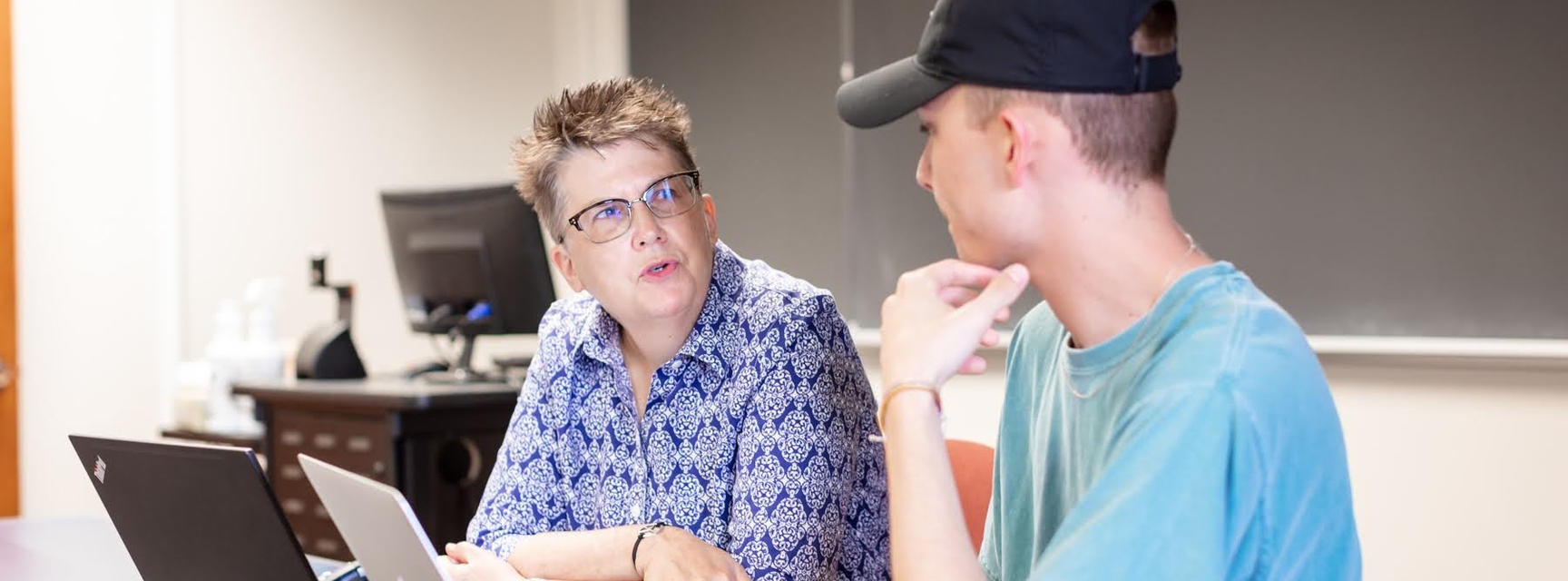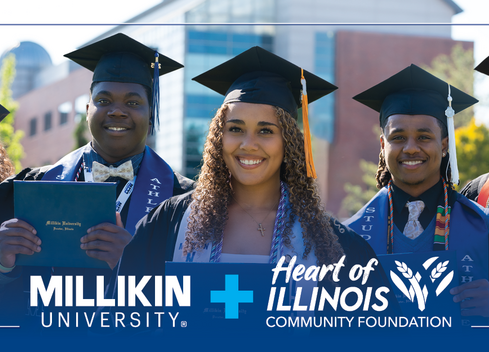Gender studies minor courses
Summer Immersion 2017
Gender Communication (CO 332/IN 251), Dr. Nancy Curtin
May 22-26 8 a.m.-5 p.m. MTWRF
In this class, we will explore the relationship between gender and communication in various contexts, such as in families, close relationships, professional organizations, and the media. Furthermore, we will consider how gender is constructed and enacted through communication in our everyday lives. In considering the construction of gender, we will examine gender expectations, identities, roles, similarities, and differences. An important component of this course will be connecting theory and research to our personal lives. Obviously, then, your experiences, insights, questions and ideas are valued, respected and important for the success of this course.
Human Nature: Diversity, Race, and Gender (IN 350), Dr. Michael Hartsock
May 22-26, 9 a.m.-5 p.m. MTWRF
Is there a universal human nature? If there is, what is it? In this course, we will cover recent debates – arising from biology, philosophy, psychology, and anthropology – that systematically examine what it means to be human. We will cover different topics related to human nature, including race, gender diversity, evolution, evolutionary psychology, innateness, and sex. This course takes seriously both the scientific data and the philosophical issues central to the fundamental question, who are we?
LGBT Drama (IN 250), Dr. Bill Zorn
July 10-21, 10 a.m.-4 p.m. MTWRF
A survey of American LGBT drama. Focuses on plays and playwrights that have had a significant impact in the representation of homosexual life onstage. Examines the historical, political, and cultural developments from which gay theatre emerged, and the communities that emerged in the process of creating gay theatre.
Global Women’s Health (IN 350), Dr. Jen Schroeder
July 11- Aug 8, 6-10 p.m. T
Global issues courses, taken during the junior year, explore a topic of global importance. Students will continue to develop their understanding of democratic citizenship with an intense focus on a particular issue of global importance and associated ethical and social justice issues. These courses include a significant research component, are writing intensive, and require exploration of primary sources (e.g., texts, music, artifacts, etc.). The focus of this section of IN 350 will be on examining critical issues related to women’s health worldwide. As a cross-listed biology course, we will devote time to understanding key aspects of the female biology, particularly puberty, reproduction, and menopause, as well as illnesses that disproportionately affect women over men. We will also address differences in how health care issues are approached from different cultural perspectives, with time spent addressing health insurance policies and availability of medical help, especially for women and children.
Fall 2017
Political Theatre (IN 250), Dr. Bill Zorn
12-12:50 p.m. MWF
This course explores questions by reading plays which played a significant role in the politics of its time in U.S. culture and history. The primary objective of this course is to introduce students to plays that not only address a range of political issues (for example: race, gender, sexuality, class, violence, the governing of subjects, and the production of good citizens) but also attempt to enact change and engage the community. To accomplish this aim, we will be reading innovative plays alongside theorists who investigate and imagine the political potential of theatre and performance. We will have to become careful readers ourselves, attentive to the forms, strategies, and content of the plays we are discussing. Much of the course will focus on close reading and careful analysis of the plays’ engagements with politics and their creative approaches to understanding and representing them. By reading these play texts and writing short political plays, we will be able both to think about what makes theatre political and to experience its effects through our own creative actions.
Foundations of Gender Studies (CO 260/IN 251), Dr. Nancy Curtin
2-3:15 p.m. TR
This course provides an overview of gender studies with a U.S. focus from various perspectives such as historical, political, sociological and communicative to name a few. You will learn about women's and men's movements; gender representation and identities; privilege, power, prejudice and stereotyping and explore gender issues in various contexts such as media, violence, sex trafficking, higher education and leadership. Other topics may emerge as interest and situations arise.
Gender Communication (CO 332), Dr. Nancy Curtin
9:30-10:45 a.m. TR
In this class, we will explore the relationship between gender and communication in various contexts, such as in families, close relationships, professional organizations, and the media. Furthermore, we will consider how gender is constructed and enacted through communication in our everyday lives. In considering the construction of gender, we will examine gender expectations, identities, roles, similarities, and differences. An important component of this course will be connecting theory and research to our personal lives. Obviously then, your experiences, insights, questions and ideas are valued, respected and important for the success of this course.
Introduction to Anthropology (SO 120), Dr. James Rauff
11 a.m-12:15 p.m. MWF
Anthropology is a way of understanding human beings today and in the past. We will examine the methods and some of the results of the major subfields of anthropology: biological anthropology, archaeology, cultural anthropology, and linguistic anthropology. Students will gain a greater understanding of what it means to be human.
Gender and Shakespeare (EN 325), Dr. Michael Hollis-George
9-9:50 a.m. MWF
For the last four to five decades, gender studies has been a crucial element for investigations into Shakespeare's works. This section of EN 325 will explore Shakespeare's representation of gender and sex in selected works, which may include Venus and Adonis, The Phoenix and the Turtle, As You Like It, Twelfth Night, The Taming of the Shrew, Macbeth, and Much Ado About Nothing. We will explore feminist theory in its application to Shakespeare's work and develop an understanding of the complexities of gender in early-modern literature.
Psychology of Stereotyping & Prejudice (PS 360/IN 251), Dr. Melissa Scircle
9:30-10:45 a.m. TR
In this course we will examine stereotyping, prejudice, discrimination, and minority experience from a social psychological perspective. In other words, we will use traditional and contemporary theories of social psychology to learn about the phenomena and processes associated with one’s beliefs about members of social groups (stereotypes), attitudes towards group members (prejudice) and behaviors towards group members (discrimination) as well as studying how these issues impact social group members.
Topics in Comparative Politics: Social Movements (PO 322/IN 350), Dr. Laura Dean
11:00 a.m.-12:15 p.m. TR
This course examines how citizens (individually and collectively) accomplish social change in societies around world. Social movements have fundamentally shaped the political, social, and economies of different countries around the world. We will examine the theoretical underpinnings of social movements including leadership, funding, opportunity costs, and outcomes of mobilization in order to better understand the emergence, endurance, and outcomes of social movement activism. We will delve deeper into social movements related to topics such as Civil Rights, women, LGBTQI, abolition, environmentalism, abortion, the Tea Party, Black Lives Matter and the occupy movement. Our focus will be global and we will engage in moral reasoning, strategic thinking, negotiations, writing, questioning, and deliberation. Cross-cultural understanding will be a central value.
Topics in World Politics: Human Trafficking (PO 323/IN 350), Dr. Laura Dean
2:00-3:15 p.m. TR
Human trafficking is a complex global phenomenon that has continued to increase as traffickers adapt their techniques in an increasingly globalized and technological world. This course will explore a range of topics related to the ethical and legal perspectives of human trafficking and modern day slavery. We will define human trafficking, the characteristics and contributing factors. We will examine the key policies and laws related to human trafficking on the international, regional, and local levels evaluating their scope and effectiveness. We will also determine what frameworks and ideologies shape those policies and build anti-trafficking institutions around the world. We will explore how the outcomes of these different legislative frameworks influence the global anti-trafficking movement and if they are effective. We will pay particular attention in to how difficult it is empirically to study trafficking – because both the crime and the victims are often hidden, and victims often do not report their situation to authorities. While estimates of human trafficking vary widely, we currently have very limited verifiable evidence of the extent of trafficking in any one area. This course will focus on the global area but include a local performance learning component, and the skills fostered will be critical reading and writing, research, reflection, analysis, and public speaking.
Sociology of Gender (SO 330/IN 251), Professor Maire Foxx
6-7:15 p.m. MW
Within this course we shall examine how policy, socio-economic status, race, ethnic identity, religion, and culture have become constructs. With the use of primary and secondary documents, we will explore whether or not these constructs actually lend to our current gender-defined understanding of one another in today’s society.
Gender studies minor course offerings for Summer Immersion and Fall 2017 (link is external).



